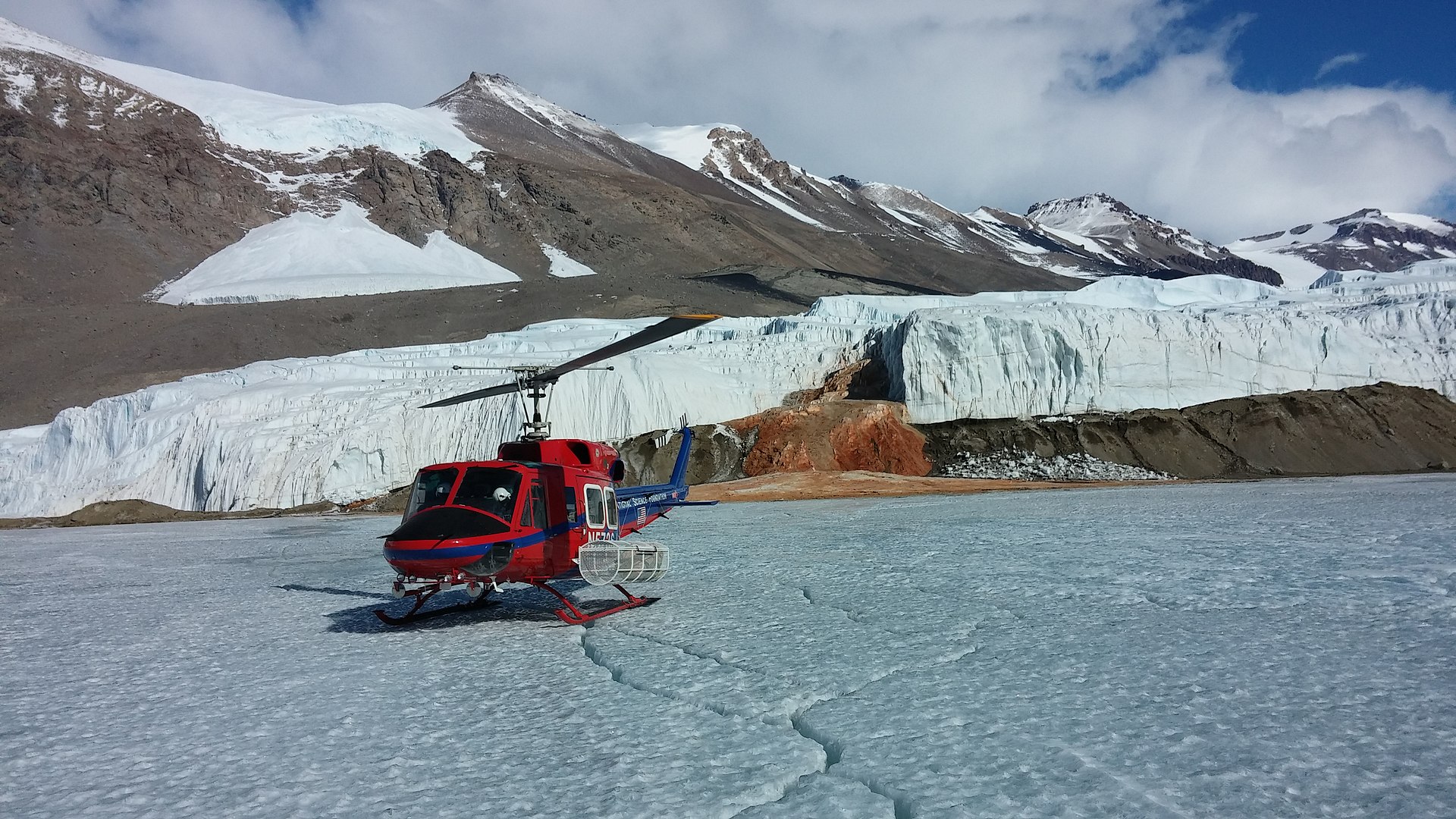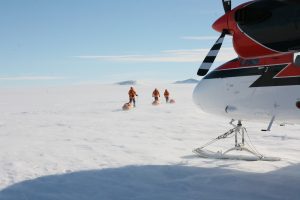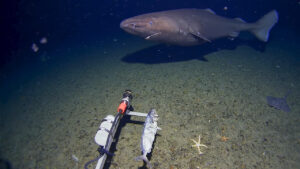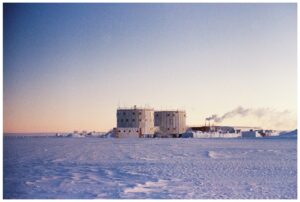The National Science Foundation (NSF) is an independent agency funds scientific and technological development across the United States and its territories. It also funds research and maintains facilities in Antarctica.
Well, it did do that, anyway. The Trump administration’s cuts have slowed operations in Antarctica to a crawl. Scientists warn that climate research conducted there is vitally urgent. Despite this, the NSF is preparing for an operational retreat from Antarctica.

Recent cuts have hit McMurdo Station. Photo: Wikimedia Commons
End of U.S. Antarctic dominance
For decades, the United States has been one of the most prominent forces on the southernmost continent. With three large Antarctic bases, a network of research vessels, and the South Pole Highway, which runs across the Ross Ice Shelf, the United States maintains a significant amount of Antarctic infrastructure.
However, that infrastructure has been in decline, especially in the wake of COVID-19. Last summer, the 30-year charter on the Antarctic Research Support Vessel Laurence M. Gould expired. Citing budgetary constraints, the NSF did not renew the charter, leaving only one functioning vessel.
The aging Antarctic stations also experienced cuts. Trump recently canceled the construction budget for the McMurdo Sound base. McMurdo Station has been in operation since 1956. From its position on Ross Island, it acts as a logistical and transport hub for the rest of Antarctica. However, its facilities are desperately in need of repairs and upgrades. Last year, one of the dorms was demolished, and now it will not be able to be rebuilt.
Not just the facilities but the research itself is imperiled. Last year, the NSF announced that it wouldn’t fund new projects for the 2024-25 and 2025-26 field seasons. Only projects that secured earlier funding are proceeding, for now.
Meanwhile, other International powers remain interested in Antarctic research. Both China and Russia have announced new bases in the region, and China, France, and Chile will deploy new icebreakers there.
Antarctica can’t wait
As the effects of anthropogenic climate change become more dramatic, Antarctica is the canary in the coal mine.
In an interview with New Zealand’s Newsroom, Gary Wilson, president of the Scientific Committee on Antarctic Research, expressed his concerns.
The challenge, he said, is that “Antarctica can’t wait.” Global temperature change and sea level rise are urgent problems, and Antarctica is central to stopping this. “Time is just not on our side.”
This isn’t just overzealous budget cuts; it’s part of an intentional policy opposing climate research. It remains to be seen what, if any, research American scientists will be able to conduct in Antarctica in the coming years.






